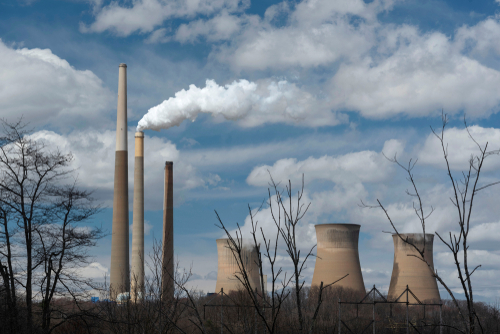
With the conclusion of Pennsylvania Gov. Josh Shapiro’s Regional Greenhouse Gas Initiative (RGGI) Working Group, which endorsed some form of cap-and-trade program — though not specifically endorsing membership in RGGI — state Republican leaders called on the Democrat to end the Commonwealth’s participation in the initiative.
“The outcome of Gov. Shapiro’s working group is overall quite hollow, and it is abundantly evident there is no consensus of the group on how to implement any type of electric tax on carbon emissions,” said State Senate Majority Leader Joe Pittman (R-41). “However, the report makes two points clear: ‘There was not consensus on the preferred specific form of cap-and-invest (i.e. RGGI vs. PJM-wide)’ and ‘legislative codification is the preferred method of institutionalizing the various elements outlined.’
“If the governor is so eager to accept their recommendations, he should immediately withdraw our Commonwealth from RGGI and look for a legislative solution which respects the need for family-sustaining jobs and positively impacts Pennsylvania’s economy,” Pittman added.
State House Republican Leader Bryan Cutler (R-Lancaster) agreed.
“Gov. Shapiro has the authority to immediately pull Pennsylvania out of RGGI while we examine alternatives that focus on affordability and reliability,” Cutler said on Friday. “It is my hope Gov. Shapiro will follow through on his skepticism of the RGGI program, end this harmful tax on Pennsylvanians, and work with us to fulfill our shared goals of increasing energy affordability and grid reliability.”
The 17-member RGGI Working Group formed by Shapiro did find common ground and consensus on a number of key issues, according to RGGI Working Group Co-Chairs Jackson Morris, director of the Eastern Region Climate & Clean Energy Program at the Natural Resources Defense Council (NRDC), and Mike Dunleavy, the retired business manager and financial secretary of IBEW Local 5.
For instance, the members of the Working Group — from organized labor and the energy industry to environmental groups and consumer representatives — reached broad consensus that reducing greenhouse gas emissions in the Commonwealth is both necessary and inevitable.
And the group agreed that a cap-and-invest carbon regulation for the power sector that generates revenue to support the Commonwealth’s energy transition would be the best approach for the state to protect and create energy jobs, take real action to address climate change, and ensure reliable, affordable power for consumers in the long-term, according to their Sept. 29 memorandum.
“The Working Group also agreed that any cap-and-invest program should include policy levers and investment strategies which help avoid any potential emissions leakage, higher localized pollution, increased energy costs, and job loss,” the duo said in a statement.
In addition to Dunleavy and Morris, the RGGI Working Group was made up of:
Robert Bair, Pennsylvania Building & Construction Trades Council
Tony Seiwell, Laborers’ District Council of Eastern Pennsylvania
James Snell, Steamfitters Local 420
Shawn Steffee, Boilermakers Local 154
Franz Litz, Litz Energy Strategies
David Masur, PennEnvironment
John Walliser, Pennsylvania Environmental Council
Lael Campbell, Constellation
Julie LaBella, Talen Energy
Sean Lane, Olympus Power
Hilary Mercer, Shell
Zach Smith, CNX
Kevin Walker, Duquesne Light Company
Patrick Cicero, Pennsylvania Consumer Advocate
Elizabeth Marx, Pennsylvania Public Utility Law Project
However, the Working Group did not reach consensus on the preferred specific form of cap-and-invest. All members also acknowledged that it would take significant time to pursue such a PJM-wide construct, and that the adoption of such an approach is far from certain.
“While the Working Group has concluded its work, we look forward to continuing this dialogue and working with Gov. Shapiro — and each other — to implement many of the consensus recommendations to strengthen the Commonwealth’s energy portfolio and serve the best interest of all Pennsylvanians,” said the co-chairs.
State Rep. Cutler said he was glad to see the RGGI Working Group acknowledge the need to lower energy prices and make energy resources more widely available.
“What remains abundantly clear, and what should have been unequivocal from this working group, is that RGGI, in and of itself, is a tax on Pennsylvanians that makes energy more costly and will end up driving down energy production here in Pennsylvania,” said Cutler. “Those are both negative outcomes for Pennsylvanians struggling to make ends meet, those who benefit from Pennsylvania’s robust energy economy, and a country looking to increase its security with energy independence.”
Meanwhile, State Sen. Pittman called the actions of former Pennsylvania Gov. Tom Wolf and his decision to unilaterally force the state to join RGGI a failed policy that, to date, the Shapiro administration has chosen to follow.
“Touting his achievement of putting together this group is noted, but the question remains: what will Gov. Shapiro do now that his working group has completed their task?” asked Pittman.
Currently, Wolf’s regulation allowing Pennsylvania to join the RGGI is stalled in the courts and Shapiro has not commented on whether he would carry out the initiative’s carbon-pricing policy if it does survive the legal challenge.